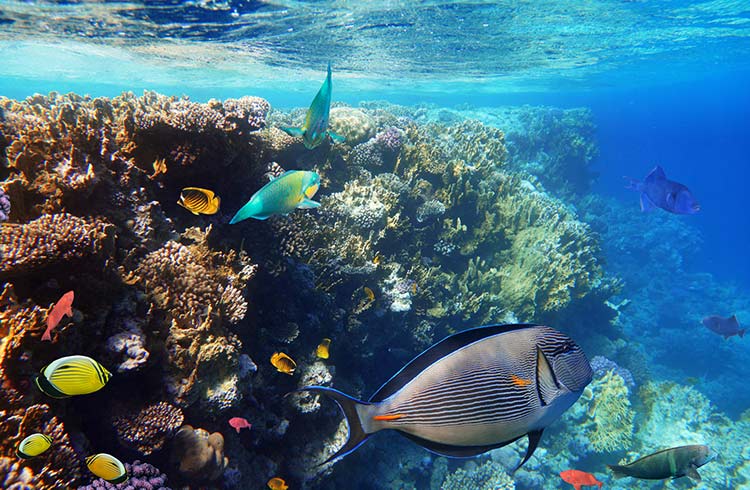Safety Tips for Scuba Diving & Snorkeling in Fiji
Fiji as a premier scuba diving and snorkeling destination. We asked Chris Mitchell from DiveHappy.com to share his essential safety tips for your underwater adventures in Fiji.
 Photo © Getty Images/ValentynVolkov
Photo © Getty Images/ValentynVolkov
Jean-Michel Cousteau – the son of the man who invented scuba – says Fiji is "the soft coral capital of the world". But, there are hard corals too, and caves, grottoes, sharks, rays, and fish of such brilliant colors you'll get tired of saying “ogggh!“ – that's “wow“ with a regulator in your mouth.
Among the most famous Fiji dive sites are the Great White Wall, the Yellow Tunnel, and my personal favorite Orgasm Reef.
With just a little variation between seasons, the water is warm and clear all year round. It can be murky in April and May because of the plankton blooms, but this time of year also attracts some interesting marine life. The only setback is cyclone season, which falls between November to April. Here are our tips on what you need to know about storms in Fiji.
If you want to experience better dive sites which are located offshore, book yourself in for a live-aboard tour.
Just about every resort offers a scuba diving course, or can put you in contact with a dive shop who can train you. Get your PADI certificate and start a lifelong love affair with the underwater before you get to Fiji.
Not PADI certified? Go snorkeling
But if you're not qualified, don't have the time or don't want using your brain cells to interrupt your holiday, try snorkeling in Fiji.
Many resorts have the gear on hand for guests – either at no extra cost or for a low fee. There are snorkeling tours with guides who can help you find the best fish, or you can throw on a mask and slip into the water where it is clean and safe to do so.
Scuba and snorkel safety tips
Scuba diving can be dangerous – there's nothing natural about breathing underwater. Which is why, apart from a few decompression tables, most of the diving course is about safety.
Scuba expert and editor of Divehappy.com, Chris Mitchell, shares his essential scuba diving safety tips here.
Many scuba operators in Fiji also recommend you to carry a Surface Marker Buoy (SMB), especially during boat dives. This can reduce your risk of injury as boats and watercraft can see that you are underwater.
But, snorkeling can turn ugly, too, if you're not careful. Here are a few things to keep in mind.
- As with scuba diving, snorkel with a buddy, someone who'll be able to help if you get into trouble
- If you're not a confident swimmer, take a floatation device and stay on the surface
- Take a flotation device anyway, most people are enjoying themselves so much they stay out too long, or overdo it, and get tired. Having something to hang on to and rest is a good idea
- Go back to shore before you're too tired. Yep, it's great fun but leave a little in reserve to get back
- Watch the wind; a strong offshore wind can blow you out to sea before you realize what's happened
- Watch the waves; stay away from breaking waves, they can catch you from behind, or pick you up and drop you onto a reef (soft coral isn't that soft when you're being rolled across it)
- Watch the tide; similar to the wind, know what the tide is doing. Not even the fastest olympic swimmer can out-swim a fast running tide.
Simple and flexible travel insurance
You can buy at home or while traveling, and claim online from anywhere in the world. With 150+ adventure activities covered and 24/7 emergency assistance.
Get a quote
No Comments